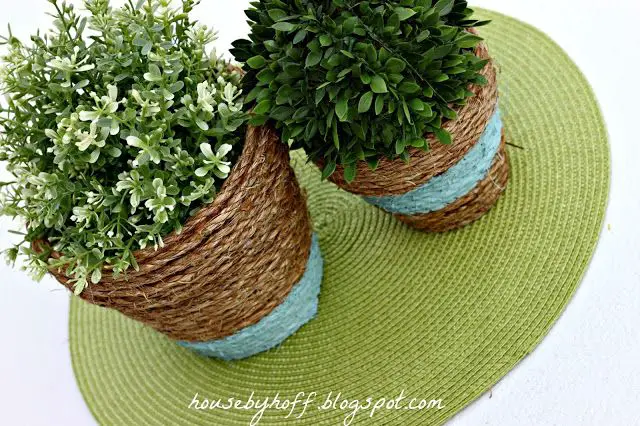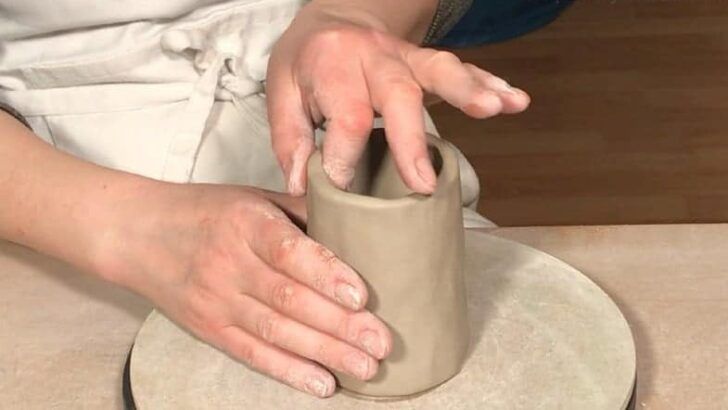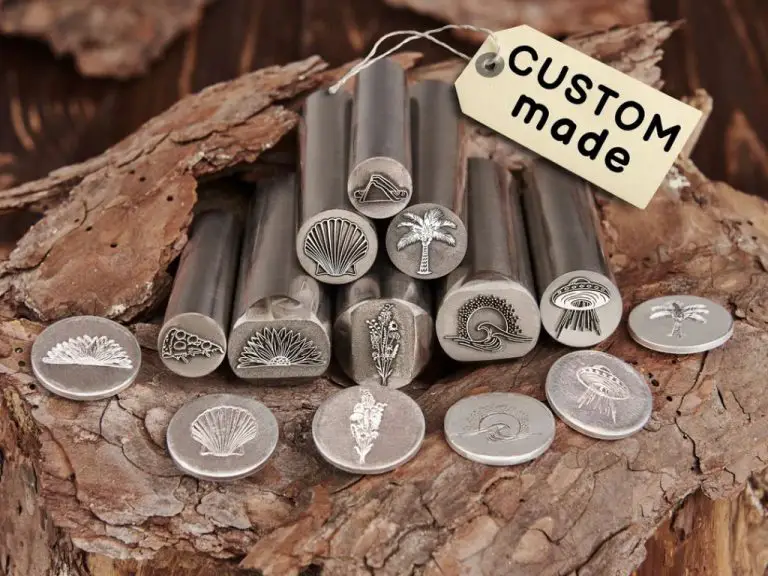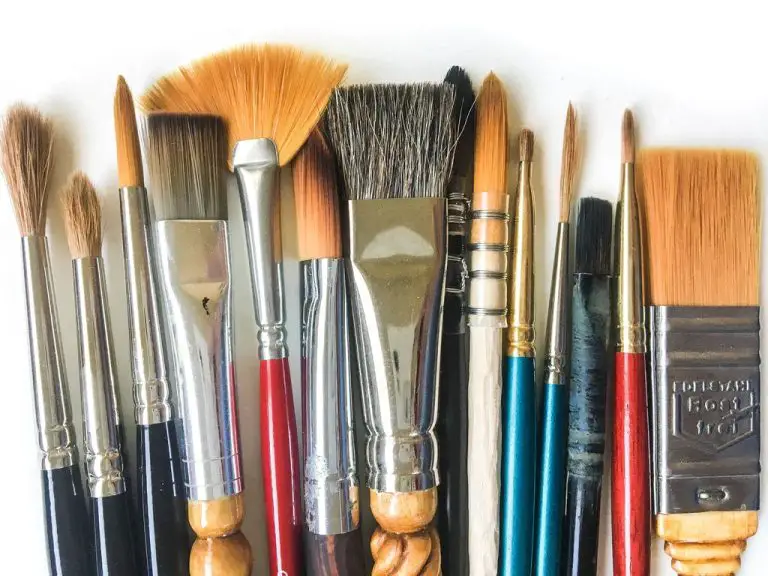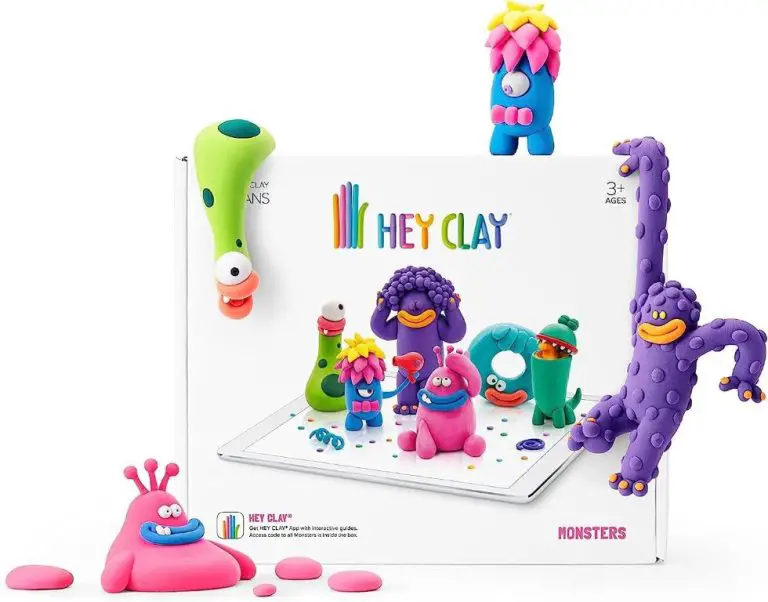Is A Bamboo Brush Good For Your Hair?
A bamboo brush is a hair brush made out of bamboo, which is a fast-growing grass. The bristles and handle are crafted from bamboo stalks. Bamboo brushes have become increasingly popular due to the perceived benefits of bamboo as a natural, sustainable material. They are promoted as an eco-friendly, cruelty-free alternative to plastic brushes or those made with boar bristles.
Proponents claim bamboo brushes are gentle on hair and provide various benefits like reducing frizz, static and split ends. The flexible bamboo bristles are said to glide smoothly through hair without breakage. Bamboo is also antimicrobial, so the brushes may limit bacteria growth. The natural material is biodegradable as well.
However, bamboo brushes also have potential drawbacks. The bristles may not be as strong or long-lasting as nylon. Bamboo is porous and can absorb water, requiring thorough drying to avoid mold or mildew. The sustainability depends on manufacturing practices. And while bamboo is renewable, it’s important to ensure harvesting is done responsibly. Price can be higher as well.
Bamboo Material Benefits
Bamboo is a natural and sustainable material that offers several advantages for hair brushes. One key benefit is the antibacterial properties of bamboo. According to research cited on The Kind Store, bamboo is hypoallergenic, anti-bacterial, and anti-dust mite. The smooth surface of bamboo doesn’t allow bacteria to adhere and proliferate like plastic can. This helps keep hair and scalp clean.
Bamboo is also praised as an eco-friendly and renewable resource. Bamboo is fast growing and doesn’t require replanting after harvest. This makes it more sustainable than slow growth woods. Bamboo hair brushes have a lower carbon footprint than plastic versions.
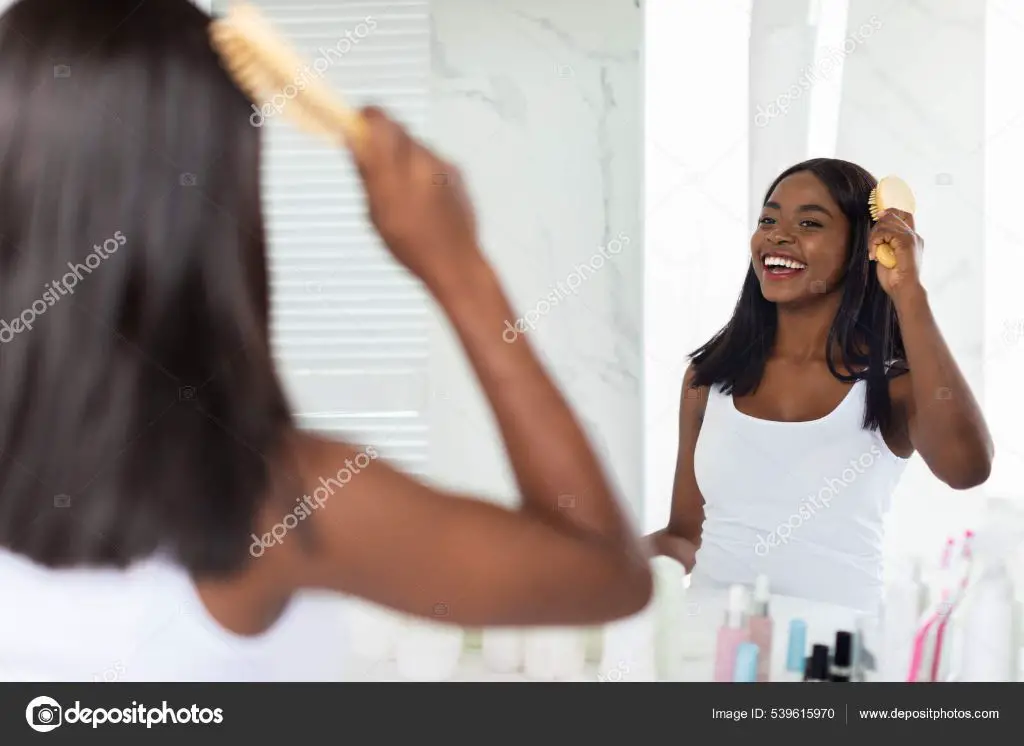
In addition, bamboo is lightweight and flexible. This allows the bristles to be soft and gentle on hair and scalp. The flexibility prevents damage from excessive pulling on wet or tangled hair. Many users praise bamboo bristle brushes for being comfortable and stimulating circulation.
Potential Downsides of Bamboo
While bamboo brushes have many benefits, there are some potential downsides to consider. One is cost – bamboo brushes often cost more than mass-produced plastic brushes. For example, a bamboo hairbrush can cost £10-15 while a standard plastic one may only cost a couple pounds. The higher price is due to the sustainable harvesting and manufacturing process. However, bamboo brushes can last for years with proper care, paying for themselves over time.
There can also be some quality control issues with bamboo. Since it is a natural material, there can be variances in durability and performance. Cheaper bamboo brushes may have bristles that fall out more easily or warp over time. Higher end brands source premium quality bamboo and use expertise in brush design to maximize performance and longevity. Checking reviews can help determine if a particular bamboo brush has quality issues before purchasing.
While a properly made bamboo brush should be quite durable, it may not last quite as long as a plastic brush due to the natural materials. With gentle care and maintenance though, a bamboo brush should provide years of use before needing to be replaced.
Bristle Design Pros and Cons
The bristle design of a bamboo brush can significantly impact its performance. Spacing, length and shape of the bristles are key factors. Wider spacing allows for deeper cleaning between teeth and stimulating gums, while a dense bristle pattern offers more overall friction (1). The ideal bristle length is around 0.2 to 0.3 mm for reaching between teeth. Bristles that are too long can be floppy and ineffective (2).
Bamboo toothbrush bristles often utilize nylon, which offers stiffness for cleaning but is softer than traditional plastic. Some combine boar bristles that are naturally antibacterial but may splinter over time (3). The shape of bamboo brush bristles is usually straight cut, which provides general cleaning ability. Rounded tips reduce gum trauma versus sharper traditional plastic bristles (2).
Sources:
(1) https://www.brushwithbamboo.com/about-the-brush/
(2) https://www.amazon.com/Bamboo-Toothbrush-Adult-Size-Pack/dp/B009O3BCT2
(3) https://poppits.com/product/bamboo-toothbrush-2/
Heat Resistance
One of the biggest concerns with bamboo brushes is whether the bristles can withstand the heat from hair dryers and other heated styling tools. Many people use heated tools regularly as part of their hair care routine, so it’s important to know if a bamboo brush can handle high temperatures.
According to research, bamboo bristles generally have good heat resistance. The bristles are often made from boiled or baked bamboo, which helps strengthen and harden them. For example, the CHANYI 3 Bamboo Hair Brushes states its brushes “can withstand temperatures up to 212°F (100°C), allowing it to be used during styling and blow-drying.”
However, not all bamboo brushes have equal heat resistance. Higher quality bamboo brushes designed for heat styling tend to perform better than cheaper versions. The thickness and construction of the bristles also impacts durability. Thicker, densely packed bristles typically hold up better to high heat over time.
Additionally, it’s best not to hold heated styling tools directly against the bristles for extended periods, as this can eventually weaken or damage them. Moderation is key for optimal longevity.
Overall, high quality bamboo brushes are a good option for people who regularly heat style their hair. Just be sure to choose a reputable brand designed specifically to withstand high temperatures. With proper care, a good bamboo brush can last through years of blow drying and hot iron use.
Impact on Different Hair Types
Bamboo brushes are gentle and versatile enough to be used on all hair types.
For straight hair, bamboo brushes help smooth flyaways and distribute the natural oils from root to tip to give hair shine and manageability. The bristles gently massage the scalp to stimulate circulation. The heat resistance of bamboo makes it easy to use when blow drying without damage.
Those with curly or coiled hair can benefit from bamboo brushes to detangle and define curls without causing extra frizz. The bristles are flexible enough to smooth hair without pulling or tugging. Using a bamboo brush when styling can reduce hair breakage that leads to frizz. According to Hairlust, their Bamboo Defining Brush “works best for textured hair” and is a “must-have for easy shaping and everyday styling of curls” (source).
For thick hair, bamboo brushes help distribute oils from the scalp down the hair shaft to moisturize dry ends. The bristles gently massage the scalp to increase circulation and control flakes. Bamboo is lightweight, preventing extra tugging or pulling on heavy hair.
Those with fine or thinning hair can take advantage of the soft, flexible bristles that smooth flyaways and loose hairs without damage. The bamboo helps distribute oils along the hair shaft for shine. The brush stimulates circulation in the scalp which may encourage new growth.
Damaged or brittle hair benefits from bamboo brushes because they do not pull or tug hair like plastic bristles can. The bamboo’s cushioned flexibility allows it to glide through damaged areas smoothly. Using a bamboo brush after washing helps evenly distribute oils and products from root to tip.
Cleaning and Care
Proper cleaning and care is essential to maintaining your bamboo brush and extending its lifespan. According to SeekBamboo
here, bamboo brushes should be cleaned regularly to remove built-up hair, dirt, and oils. It’s recommended to clean bamboo brushes at least once a week.
To clean a bamboo brush, first remove any loose hairs by hand. Then, use a small amount of mild or natural soap and lukewarm water to create a gentle lather on the brush bristles. Gently massage the bristles to lift dirt and buildup. Rinse thoroughly until the water runs clear. Allow the brush to air dry completely before using again.
Avoid submerging the entire bamboo brush in water to prevent damage to the glue and integrity of the construction. Also refrain from using harsh cleaners, bleach, acidics like vinegar, or abrasives that could wear down the natural bamboo material over time according to Memotherearthbrand
recommendations. With proper, regular cleaning using gentle products and methods, bamboo brushes can last for years.
Cost Analysis
When comparing the cost of bamboo toothbrushes to other common toothbrush materials like plastic, the prices are quite similar. According to Amazon, a pack of 10 bamboo toothbrushes typically ranges from $6-15 depending on the brand (Source). This averages out to $0.60-1.50 per bamboo brush. Plastic toothbrushes can usually be purchased for around $1-3 per brush at local retailers.
Some factors that influence the price of bamboo toothbrushes are the quality of materials, manufacturing process, and any specialty features like charcoal infused bristles. While bamboo is a natural material, specialized processing and shaping of the bamboo handle can impact costs. Overall, consumers can expect to pay about the same price for a bamboo toothbrush versus a standard plastic toothbrush.
One potential benefit is that bamboo toothbrushes are often sold in bulk packages (e.g. 10 brushes for $10), which brings down the per unit price. Bamboo toothbrushes may seem more expensive upfront when buying a multi-pack, but end up costing about the same or potentially less per brush compared to plastic.
Environmental Impact
Bamboo brushes are often touted as a more sustainable option compared to traditional plastic brushes. Bamboo is a fast-growing grass that can be repeatedly harvested without destroying the plant. It also requires no fertilizers or pesticides to grow (1). Plastic on the other hand is derived from fossil fuels and contributes to pollution in its production and disposal. It can take hundreds of years for plastic to decompose in landfills.
Bamboo hair brushes are biodegradable and compostable at end of life, whereas plastic brushes will continue to persist in the environment. According to one source, bamboo hair brushes are carbon negative compared to nylon brushes which have a large carbon footprint (2). The bamboo plant actually captures CO2 from the atmosphere as it grows. This makes bamboo hairbrushes an excellent eco-friendly choice.
However, some bamboo brushes combine bamboo handles with plastic bristles, reducing their sustainability. Opting for 100% bamboo hair brushes without any plastic components is ideal for minimizing environmental impact.
Conclusion
Considering all the factors, is a bamboo brush ultimately good for your hair? The answer depends on your individual hair type, styling needs, and priorities.
For most people, bamboo brushes can provide gentle, effective brushing and styling. The smooth, rounded bristles are less damaging than plastic, and bamboo’s anti-static, moisture-wicking properties can benefit hair. Those with thick or curly hair may find bamboo brushes help detangle and distribute natural oils without frizz.
However, the quality of bamboo hair brushes can vary. Cheaper versions may have bristles that are too soft or fall out easily. The material can be prone to mold if not properly cared for. Bamboo brushes also tend to be more expensive than plastic.
When shopping for a bamboo brush, look for high-quality construction with securely attached, smoothly polished bristles. Make sure to clean and dry the brush thoroughly between uses. With proper care and realistic expectations, a bamboo brush can be a good investment for healthy, shiny hair.

